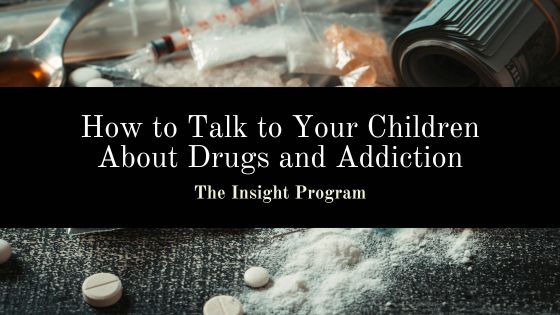Talking to your children about drugs and addiction is one of the most important conversations you can have as a parent. It can be challenging, but with the right approach, you can create an open and honest dialogue that empowers your children to make safe and healthy choices. Here are some tips on how to effectively discuss drugs and addiction with your children.
Start Early and Continue the Conversation
Begin the conversation about drugs and addiction early, even when your children are young. Use age-appropriate language and concepts to introduce the topic. For example, you can start by explaining that some substances, like medicine, can help us when we’re sick, but others can be harmful if used incorrectly. As your children grow older, continue to revisit the conversation, providing more detailed information as they are able to understand it.
Create a Safe and Open Environment
Make sure your children know that they can come to you with any questions or concerns about drugs and addiction without fear of punishment or judgment. Creating a safe and open environment encourages them to seek your guidance and support. Listen actively to their questions and concerns, and respond with empathy and understanding.
Educate Yourself and Your Children
Before talking to your children, educate yourself about drugs and addiction. Understand the different types of substances, their effects, and the risks associated with them. Share this knowledge with your children in a way that is appropriate for their age and level of understanding. Use real-life examples and stories to illustrate the dangers and consequences of drug use and addiction.
Use Teachable Moments
Look for natural opportunities to discuss drugs and addiction. These teachable moments can arise from news stories, TV shows, movies, or real-life situations. For example, if a character in a TV show is struggling with addiction, use that moment to talk about the issue with your children. This helps them see the relevance of the topic in everyday life.
Emphasize Healthy Choices and Coping Mechanisms
Teach your children about the importance of making healthy choices and developing positive coping mechanisms. Encourage them to engage in activities they enjoy, such as sports, music, or hobbies, which can provide a sense of purpose and fulfillment. Discuss how stress, peer pressure, and other challenges can lead to drug use, and provide strategies for coping with these situations in a healthy way.
Set Clear Expectations and Boundaries
Clearly communicate your expectations and family rules regarding drug use. Explain the reasons behind these rules and the consequences of breaking them. Consistency is key; enforce the rules and consequences consistently to reinforce their importance. Let your children know that these rules are in place to protect their health and well-being.
Be a Role Model
Children often mimic the behavior of their parents. Set a positive example by making healthy choices in your own life. Avoid using drugs or alcohol in front of your children, and demonstrate healthy ways to cope with stress and challenges. Your actions can have a powerful influence on your children’s attitudes and behaviors.
Encourage Critical Thinking
Help your children develop critical thinking skills by encouraging them to question and analyze the information they receive about drugs and addiction. Discuss the impact of peer pressure and the importance of making informed decisions. Teach them to evaluate the credibility of sources and to seek out accurate information.
Seek Professional Help if Needed
If you suspect that your child is struggling with drug use or addiction, seek professional help immediately. A healthcare provider, counselor, or addiction specialist can provide guidance and support for both you and your child. Early intervention can make a significant difference in preventing and addressing substance abuse issues.
Conclusion
Talking to your children about drugs and addiction is an ongoing process that requires patience, openness, and honesty. By starting the conversation early, creating a safe environment, educating yourself and your children, and providing support and guidance, you can help them navigate the challenges of growing up and make healthy, informed choices. Remember, the goal is to empower your children with the knowledge and skills they need to avoid drugs and addiction and lead healthy, fulfilling lives.

